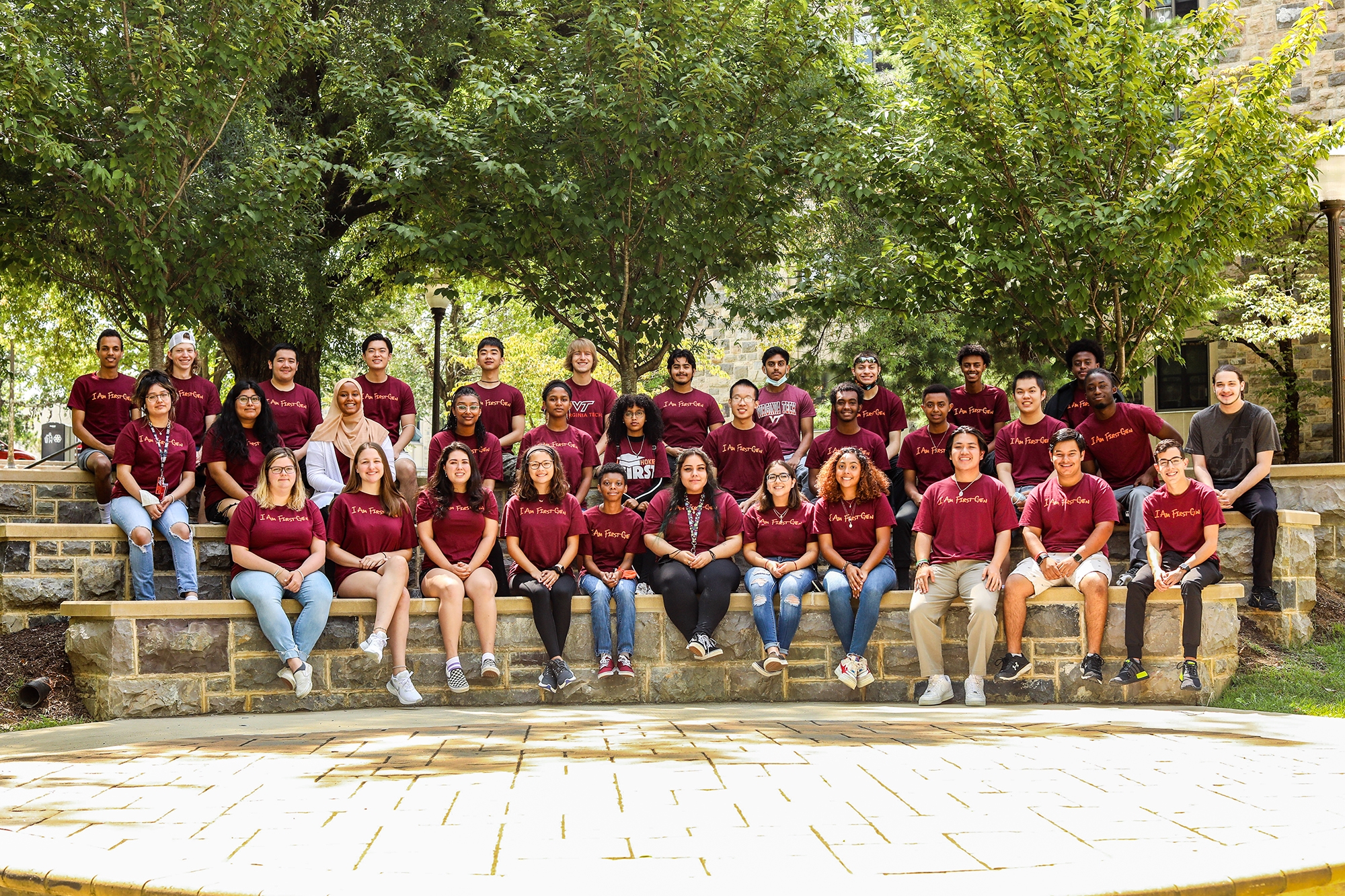University community encouraged to submit ideas for new living-learning programs

The Office of Living-Learning Programs at Virginia Tech is expanding its 19 current programs and now accepting requests for proposals (RFPs) from the university community.
Living-Learning Programs (LLPs) share a common goal: to provide students with the opportunity to thrive both in and out of the classroom in a learning environment that becomes a community and a home. LLPs cater to a wide variety of interests, such as arts and creativity, population specific programs, and programs that are academic focused and major centered.
“One of the strengths of Virginia Tech's LLPs is that these communities are true collaborative endeavors that started because someone saw a need and a way to enrich the student's living and learning experience. Releasing a request for new living-learning community proposals is a way for us to further the ways in which we support students,” said Jamie Penven, director of the Office of Living-Learning Programs.
The RFP process will last about a month, which allows faculty and staff interested in launching a community time to consult with staff in the Office of Living-Learning Programs to develop a proposal. A committee reviews submitted proposals and identifies communities to launch in fall 2023. Steering committees for these communities will begin meeting in January 2022.
“Using an 18-month planning window allows us the time to ensure the community is a well developed, supported, and robust experience for student participants,” Penven said.
Vice President for Student Affairs Frank Shushok Jr. decided a strategic realignment of existing LLP and Housing and Residence Life (HRL) positions would allow this new office to focus their efforts solely on the work associated with LLPs.
The creation of the Office of Living-Learning Programs led to Penven’s arrival on campus. He previously worked at Virginia Tech in HRL, and most recently led student success and retention efforts at Radford University. He now oversees the maintenance and expansion of the 19 LLPs, which includes overseeing requests for new LLPs, as part of the campus-wide initiative Beyond Boundaries.
The Beyond Boundaries vision has two main goals: advancing Virginia Tech as an internationally recognized, global land-grant institution and strategically addressing the challenges and opportunities presented by the changing landscape of higher education. Part of the visionary work includes a goal of 67 percent of residential students participating in a living-learning community or a residential college. Requests for new LLPs are important, not only as part of the foundational vision that will support future generations, but also to students.
Paolo Fermin, a senior majoring in computer engineering, lived in the Honors Residential Commons (HRC) at East Ambler Johnson. He described how his living-learning experience shaped his personal growth. Coming in as a first-year student, the existing structure and community eased his transition from being away from home for the first time. Traditions such as D2uesday, Principal's Tea, and the HRC Olympics were great ways to meet new people.
“What I loved about the HRC is the diversity of life experiences of students I was constantly surrounded by, and my role as an RA gave me an even better chance to meet and learn about new people. Now, I serve as the undergraduate representative to the Board of Visitors. It is a great honor to represent students at the highest level of governance, and I fully acknowledge that the path that led me to this role was started with the leadership experience and connections that I found in the HRC,” Fermin said.
Fermin recalled a Principal Tea he attended, where Pablo Tarazaga, previous faculty principal of HRC and assistant professor of engineering, argued that college is not just a place where you earn a degree, but also where you develop yourself as a person. Tarazaga discussed the value of learning experiences outside of the classroom, and this resonated with Fermin.
“Essentially, through my time in the HRC, I developed as a student, as a leader, but most importantly, as a person. When I think back upon my time at Virginia Tech, I will certainly not remember the countless lectures I had to attend, the various meetings, and extracurricular activities that I was a part of. I will remember the times that I had in my LLP, the impromptu conversations at 1 a.m. in the hallway, the fun traditions we had, and the lifelong connections that I made there with the people of Virginia Tech,” Fermin said.
These communities are more than nurturing, diverse environments, and spaces for collaboration. They are also home to more than 4,000 students annually. There are different governance structures, identities, and programming for each living-learning community. Not only do students receive an on-campus experience, they also have access to more social events, faculty, and professional development. A recent U.S. World & News Report ranked Virginia Tech 13 in learning community programs out of 1,500 other colleges.
“Virginia Tech offers among the best living-learning programs in the country," said James Bridgeforth, assistant vice president for Student Affairs. "These communities are vitally important to our students as they bring faculty and students together in a holistic community that helps students better identify their strengths, clarify goals, and flourish at Virginia Tech.
“There are many aspects of our living-learning programs that attract students, [such as] the deep sense of community and connectedness to other students who participate in the programs alongside them," Bridgeforth continued. "Living within one of the living-learning communities provides students with rich relationships and resources that enhance their Virginia Tech experience.”
The Office of Living-Learning Programs welcomes proposals for new living-learning communities. There will be an in-person interest meeting held on Oct. 20 with a virtual option on Oct. 25. Proposals will be accepted until Nov. 8. For questions regarding proposals or interest meetings, contact Jamie Penven, director of the Office of Living-Learning Programs.
Written by Tayten Allison





